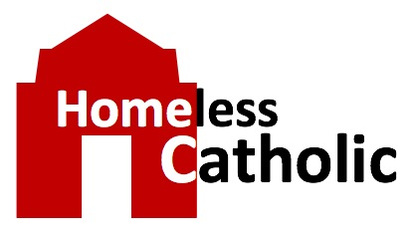It's easier to give help than accept it
The question is, what do we do with what has been given to us. When we contribute to charities or the church, then we are sharing our wealth with others. But, it goes much deeper than that. When we help a friend in need, show compassion for a sick friend, pray for someone who is in need help, we are sharing non-monetary wealth given us by God. It can even go in the opposite direction.
When someone offers us help or consolation, we should accept it as a gift from God. Often it is much easier to give help, than to accept help.
Image by Jackson David
What do we do with what has been given to us?
By Lou Occhi
https://bible.usccb.org/bible/readings/110720.cfm
PHIL 4:10-19
2 COR 8:9
Tim presented and excellent reflection on humility last week. Because of the way readings are organized, his reflection leads right into my reflection.
Today I will start with the first line of the gospel reading. “Jesus said to his disciples: ‘I tell you, make friends for yourself with dishonest wealth, so that when it fails, you will be welcomed into eternal dwellings’ “. I have to say this line really confused me. What exactly is dishonest wealth and how do I make friends with it?
From my own earthly perspective it is claiming wealth as my own that belongs to someone else. However, Jesus rarely concerns Himself with worldly things. I tried to Google this passage and really didn’t get much out of the commentary that I found. So, I just made up my own thoughts on this. Everyone on this planet has some sort of wealth. This goes from the poorest of the poor to the wealthiest of the wealthy.
The first thing that comes to mind is my life. My physical being comes through my parents love for each other. My spiritual being was created simply through the will of God at the moment of conception as an act of love. That is wealth given to me by God. My life belongs to God. I did nothing to earn my own creation. When my earthly life finally fails, I have the chance live an eternal life with my creator. In addition to my life I have been given gifts which I am to use to love, honor and serve the Lord. Everything else that I accrue in life is just gravy given to me by God. I am reminded of Jesus’ discussion with Pilate. In John 19:10-11 Pilate asks Jesus “Do you know that I have the power to free you or crucify you?” Jesus answered, “You would have no power over me if it were not given to you from above. Therefore the one who handed me over to you is guilty of a greater sin.” When we claim as our own all that we have then that is dishonest wealth since it all comes from God and has been given freely to us. We often see athletes point towards heaven when they run a touchdown or hit a home run. We also see athletes give praise to God for things they did in their game. These men have the courage to acknowledge God in their success are acknowledging their wealth freely given to them.
The question is, what do we do with what has been given to us. When we contribute to charities or the church, then we are sharing our wealth with others. But, it goes much deeper than that. When we help a friend in need, show compassion for a sick friend, pray for someone who is in need help, we are sharing non-monetary wealth given us by God. It can even go in the opposite direction. When someone offers us help or consolation, we should accept it as a gift from God. Often it is much easier to give help, than to accept help.
I am reminded of my dad when I think about accepting help. One day he and I were talking. He said he had to move some furniture around. He was in his 80’s and I thought that he would need some help doing it. We agreed that I would come over early Saturday morning and I would help him. So, I show up Saturday morning and my mother, like all good Italian mothers, had a huge breakfast fixed for me. When we finally finished eating I asked my dad what he had to move. He simply said that he had already done it. My dad’s good intention was to give me a good meal and not put me out. However, when someone offers to help you he is doing God’s work. Let him!
This ties directly into what Paul was talking about in the first reading. He said to the Philippians, “For even when I was at Thessalonica you sent me something for my needs, not only once but more than once. It is not that I am eager for the gift, rather, I am eager for the profit that accrues to your account.” Here he is acknowledging the graces being accrued by the Philippians in sharing the wealth given them by God.
Going on with Luke’s gospel, Jesus says that if you are not trustworthy with dishonest wealth, who will trust you with true wealth. Jesus is talking to the Pharisees and he knew that they loved their earthly wealth. Sure, they tithed, but it was always for their own aggrandizement. It was dishonest wealth used in dishonest ways. Jesus continues by saying that if you are not trustworthy with what belongs to another who will give you what is yours. This is more severe that what it initially sounds like. Here He is saying that if you are dishonest with what God has given you then don’t expect Him to give you what is yours, i.e. eternal life in paradise. This is like Pilate taking credit for the power he has over life and death and does not recognize that he only has that power because it was given to him. Jesus goes on to say, “No servant can serve two masters. He will either serve one and love the other or be devoted to one and despise the other. You cannot serve God and mammon.”
God has provided us with true wealth but he does not demand what we do with that wealth. We can acknowledge and love the source of that wealth and use that wealth to give glory to our Lord. Conversely, we can dishonestly claim it as our own for our own earthly glorification. We have been given the gift of free will and, as such, we can chose God or mammon but not both.

